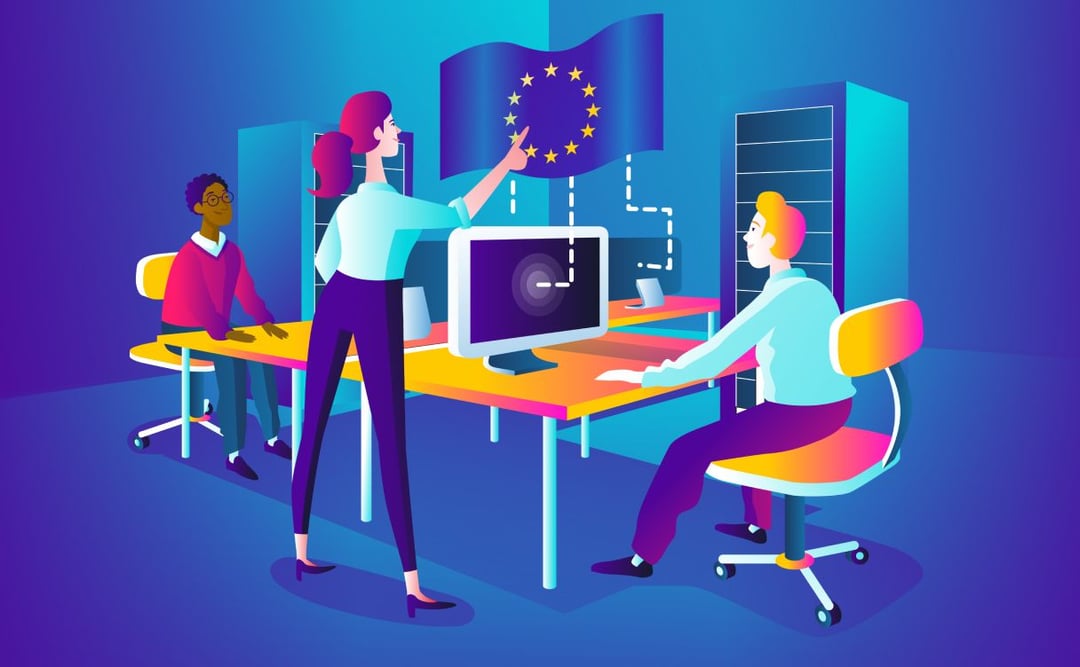
Why sustainable chip sourcing matters for European tech
Since the second half of 2020, demand for semiconductors has exceeded supply. Cue a global shortage, aggravated by pandemic-induced lockdowns, has left the world reeling.

On Europe Day, Yann Lechelle, CEO of Scaleway, reflects upon the creation of the European Coal and Steel Community. Now that the raw material of our economies is data, he calls for inspiration to be drawn from the audacity of the founding fathers of the European Union. The European Union now needs “creative efforts” if it is to meet the challenges of the digital world.
9 May 1950 is a somewhat overlooked date, yet it marks the beginning of an unprecedented adventure - the European construction. Five years after the end of the Second World War, our continent still bore the open wounds of the ravages of the “Second Thirty Years' War” - the phrase famously coined by Charles de Gaulle. The engine of the world was sputtering back to a start, hindered by deep uncertainty due to the barely dormant rivalry between the two blocks. As the Belgian Prime Minister at the time, Paul-Henri Spaak, highlighted, Europe had to be careful “not to be taken by surprise by peace”, it was necessary to find an innovative path to reconciliation, and to learn from the interwar period.
On that day, the then French Foreign Minister, Robert Schuman, made a groundbreaking statement announcing the creation of the European Coal and Steel Community (ECSC). In other words, the pooling of the raw materials of the economy of the time, which was in the midst of reconstruction.
Aside from its technocratic dimensions, this declaration was above all proof of the audacity and visionary spirit of the founding fathers of the European project. They dared to pave a new path so that any war between the enemies of yesterday would be “not merely unthinkable but materially impossible”, and also for the creation of “common foundations for economic development” and a “powerful productive unit”.
The Schuman Declaration was also an artful method that over the following decades allowed for the construction of economic reunification in European countries, and for the promotion of the freedom of European citizens, while respecting their diversity. It was ambitious, and underlined first and foremost the need for “creative efforts” in the face of the dangers threatening our countries at the end of the world war. This pragmatic approach proposed action be taken “on one limited but decisive point”, for “concrete achievements which first create a de facto solidarity”.
Seventy-one years later, the world has, of course, undergone profound changes. Significant, if varying, geopolitical tensions persist between many continent-states. Data has become the raw material of the economy, like coal and steel in the 1950s. Even if peace reigns within the borders of the European Union, new generations are nonetheless confronted with tremendous challenges - the health crisis, climate change, and the economic, technological and social changes brought about by the rapid arrival of digital technology in our daily lives.
In the face of these new challenges, the need for concerted responses and concrete joint achievements, in legislative or regulatory fields that are still relatively unexplored, on a European scale has never been so pressing.
As an alternative European leader in the cloud sector and a co-founding member of the GAIA-X initiative, we are convinced that economic success and European sovereignty in the digital sector is not based on the search for the lowest common denominator between member states. Rather, as Jean Monnet, the first President of the High Authority for the European Coal and Steel Community, wrote in his memoirs, it remains necessary to “gradually create among the men of Europe the widest common interest administrated by democratic institutions to which the necessary sovereignty is delegated”. Monnet’s was a lesson rich in inspiration for our leaders in the 27 EU capitals and in Brussels.
In this vein, we encourage national and European institutions to revive this pioneering spirit on a daily basis. This is necessary for our joint and regional reinvention. In our view, it is an essential prerequisite if we are to succeed in driving forward measures that are in line with our European values in terms of governance, data protection and security, and in establishing new ambitions in terms of industrial and competition policies, environmental and water management. We are convinced that a united Europe can make decisive contributions to all of these structuring issues, and serve as an example well beyond the borders of our continent. In short, this can be our way of pursuing the unattainable horizon of European Construction in the digital and cloud era. As Jean Monnet so clearly put it, "we are not making a coalition of states, but uniting people".

Since the second half of 2020, demand for semiconductors has exceeded supply. Cue a global shortage, aggravated by pandemic-induced lockdowns, has left the world reeling.

Now that the raw material of our economies is data, he calls for inspiration to be drawn from the audacity of the founding fathers of the European Union. Learn more on this article.

Discover how DC5 operates: How do we optimize the energy footprint of datacenter? How can we prevent power loss? How can we deliver proper cooling make it modular?